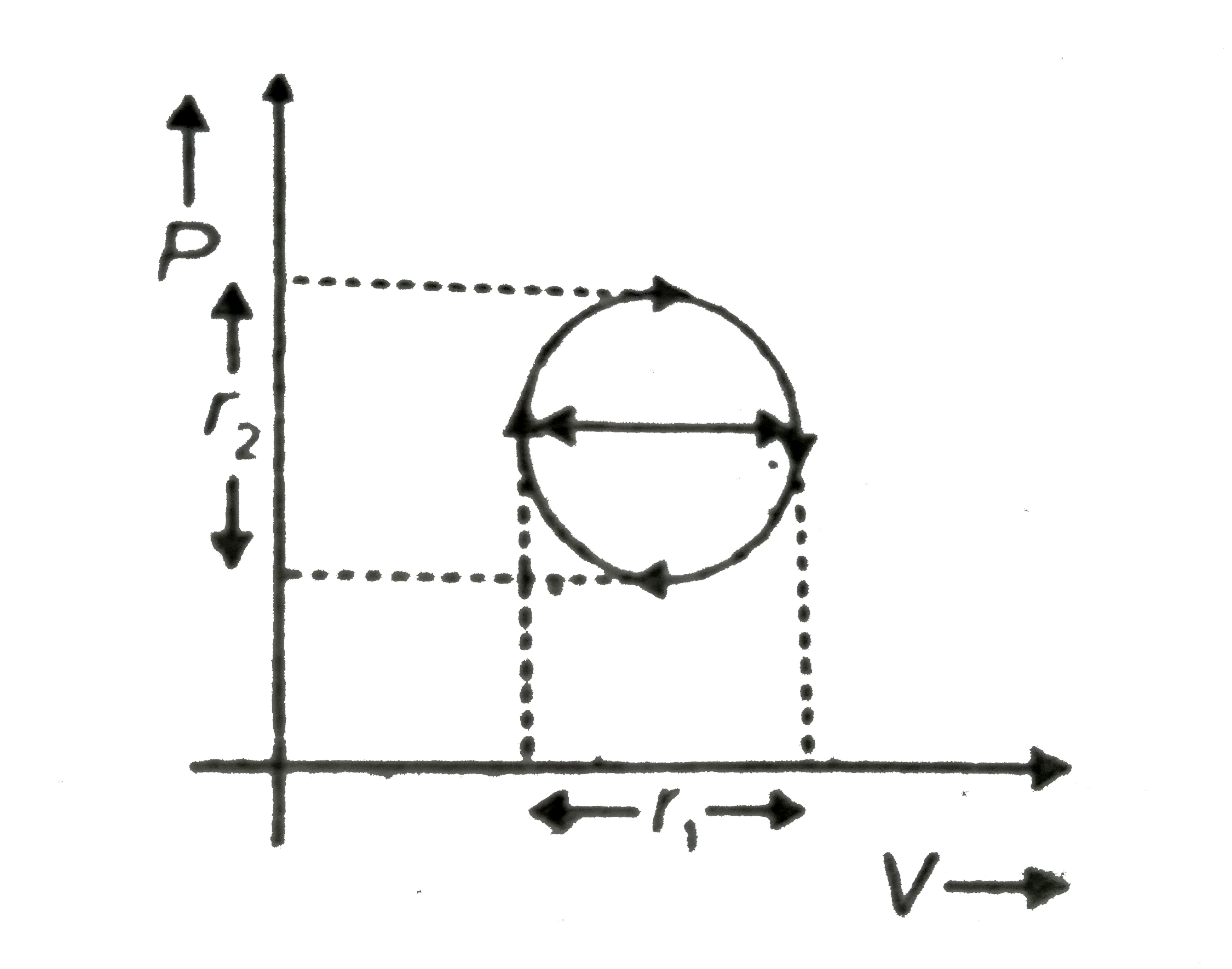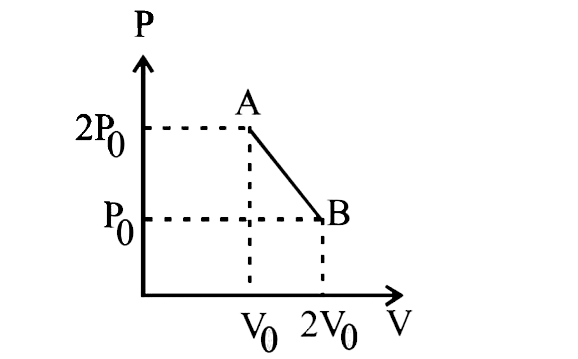In a process, the pressure of an ideal gas is proportional to square of the volume of the gas. If the temperature of the gas increases in this process, then work done by this gas
is positive
is negative
is zero
may be positive
The correct Answer is:A
As p∝V2
T∝V3
I.e. if temperature increases, volume also increases hence w.d. will be positive
Topper's Solved these Questions
Similar Questions
In a process the pressure of a gas is inversely proportional to the square of the volume. If temperature of the gas increases, then work done by the gas:
View SolutionIn a process the pressure of a gas is inversely proportional to the square of the volume. If temperature of the gas increases, then work done by the gas:
View SolutionDuring an adiabatic process, the pressure of a gas is found to be proportional to the square of its absolute temperature. The γ for the gas is
View SolutionA sample of gas is going through cyclic process, work done by gas is

View SolutionDuring an adiabatic process, the pressure of a gas is found to be proportional to cube of its absolute temperature. The poision's ratio of gas is:
View SolutionIn a thermodynamic process two moles of a monatomic ideal gas obeys PV–2=constant. If temperature of the gas increases from 300 K to 400 K, then find work done by the gas (Where R = universal gas constant)
View SolutionThe thermodynamic process in which no work is done on or by the gas is
View Solutionn' moles of an ideal gas undergoes a process A→B as shown in the figure. The maximum temperature of the gas during the process will be:

View SolutionTemperature of 1mol of a gas is increased by 1∘ at constant pressure. The work done is
View SolutionTemperature of 1mol of a gas is increased by 1∘ at constant pressure. The work done is
View Solution
